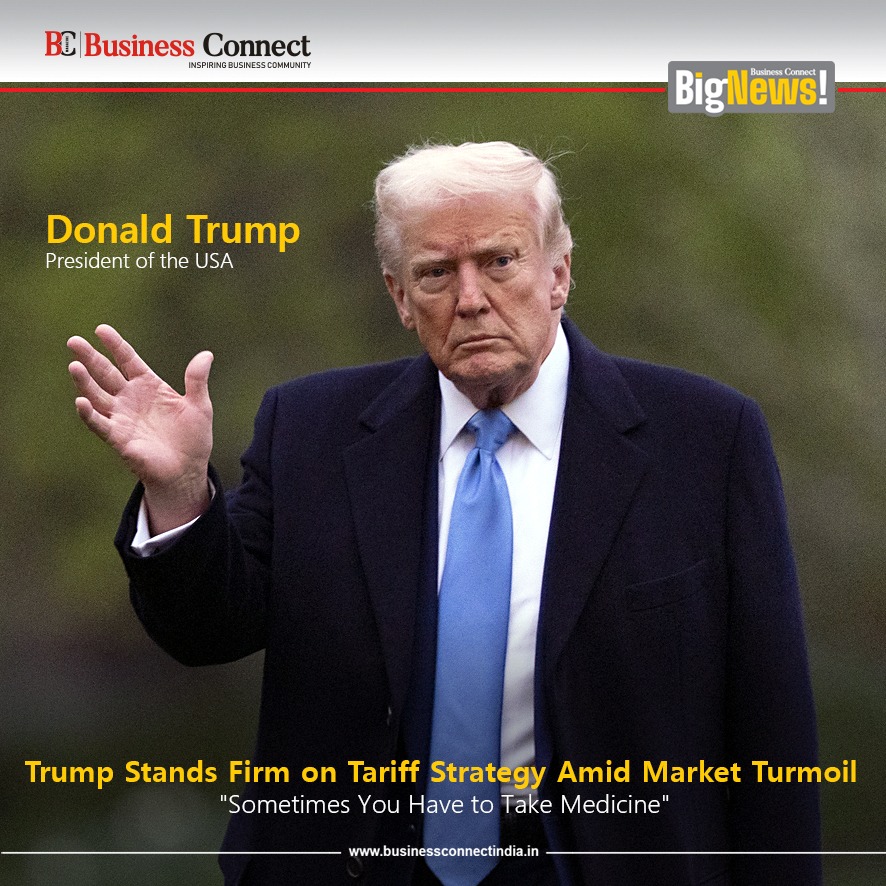On Sunday, April 6, 2025, U.S. President Donald Trump addressed the ongoing stock market crash, defending his aggressive tariff policies while dismissing suggestions that he was intentionally destabilizing the economy. Speaking to reporters aboard Air Force One as he returned from a golfing weekend in Florida, Trump remarked, “Sometimes you have to take medicine to fix something,” signaling his belief that short-term economic pain is a necessary step toward long-term stability.
Trump Stands Firm on Tariff Strategy Amid Market Turmoil: “Sometimes You Have to Take Medicine”
The president’s comments come as global financial markets reel from his recent announcement of sweeping reciprocal tariffs, including a 34% duty on Chinese imports and a baseline 10% tariff on goods from over 180 countries.
The policy, which Trump has touted as a means to address trade imbalances and revitalize American industry, has triggered a sharp selloff, wiping out trillions in value from U.S. stocks in recent days. Despite the turmoil, Trump remained resolute, insisting that he does not “want anything to go down” but that the measures are essential to correct years of what he called “stupid leadership” under previous administrations.
“We have been treated so badly by other countries because we had stupid leadership that allowed this to happen,” Trump said, pointing the finger at the Biden-era policies he claims left the U.S. vulnerable in global trade. He expressed confidence that trading partners are “coming to the table” and eager to negotiate, suggesting that the market chaos could ultimately pressure foreign nations into more favorable deals with the United States.
The stock market’s reaction has been swift and severe. U.S. stock futures plummeted Sunday evening, with Dow and S&P 500 futures dropping nearly 4%, signaling a rough start to Monday’s trading session.
Analysts warn that the tariffs could stoke inflation, disrupt supply chains, and potentially push the economy toward a recession—a scenario Trump has neither ruled out nor fully dismissed. Yet, the president appeared unfazed, framing the current downturn as a bitter but necessary pill for the nation to swallow.
Trump’s economic team has echoed his resolve. Commerce Secretary Howard Lutnick emphasized that “the tariffs are coming” and dismissed recession fears, while Treasury Secretary Scott Bessent noted that over 50 countries have reached out to the administration for talks—though he cautioned that negotiations will take time.
The administration’s stance contrasts with growing unease among investors and some Republican allies, who worry that the tariff barrage risks tanking the economy for little more than ideological gain.
Critics argue that Trump’s approach lacks a clear endgame, with some pointing to his earlier Truth Social posts—where he shared a video claiming he was “purposely crashing the market”—as evidence of mixed messaging.
Supporters, however, see it as a bold move to reassert American economic dominance, even if it means enduring a period of volatility. “Eventually it’s going to straighten out, and our country will be solid and strong again,” Trump predicted optimistically.
As Wall Street braces for another turbulent week, the president’s “medicine” metaphor underscores a high-stakes gamble: that Americans will stomach the immediate fallout in hopes of a healthier economic future. Whether this prescription heals or harms remains to be seen.
Add Business Connect magazine to your Google News feed



